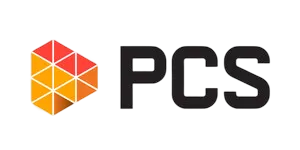From managing patient records to ensuring smooth communication between healthcare professionals, every aspect of healthcare operations relies heavily on technology. However, maintaining and optimizing IT systems can be daunting for healthcare providers, often diverting their focus from patient care. This is where managed IT services step in to alleviate the burden and streamline operations.
The Critical Need for Tailored IT Support in Finance
The Role of Managed IT Services in Healthcare:
Managed IT services are essential in supporting the complex IT needs of healthcare organizations. These services encompass a range of solutions personalized to address the unique challenges faced by the healthcare industry. From computer support and services to IT maintenance and support services, managed IT providers offer comprehensive solutions to ensure seamless operations.
Computer Support and Services:
Healthcare facilities rely on a multitude of computer systems for various tasks, from administrative duties to medical record keeping. With managed computer support and services, healthcare providers can ensure that their systems are running efficiently at all times. This includes proactive monitoring, timely software updates, and troubleshooting to prevent downtime and minimize disruptions.
IT Maintenance:
Regular maintenance is essential to keep IT infrastructure running smoothly. Managed IT service providers offer proactive maintenance plans to address potential issues before they escalate. This includes hardware maintenance, software patching, and security updates to enhance system reliability and performance.
IT Support Service:
Prompt and reliable IT support is crucial for healthcare providers to address technical issues promptly. Managed IT services offer dedicated support teams that are available around the clock to assist with troubleshooting and resolution. Whether it's a software glitch or a hardware malfunction, having access to expert IT support ensures minimal downtime and uninterrupted patient care.
Managed IT Services for Healthcare Organizations:
Outsourcing IT support allows healthcare organizations to focus on their core mission of delivering quality patient care. By partnering with a managed IT services provider, healthcare facilities can benefit from a range of services tailored to their specific needs. These services go beyond just technical support; they encompass strategic planning, risk management, and compliance to ensure that healthcare organizations operate efficiently and securely.
Key Benefits of Managed IT Services for Healthcare Providers:
- Cost-Effectiveness: Managed IT services offer predictable monthly costs, allowing healthcare providers to budget effectively without worrying about unexpected expenses associated with IT maintenance and support.
- Improved Efficiency: By outsourcing IT support, healthcare providers can maximize the expertise of managed IT service providers, leading to faster problem resolution, reduced downtime, and improved productivity across the organization.
- Enhanced Security: With the increasing threat of cyberattacks and data breaches, ensuring the security of patient information is a priority. Managed IT service providers implement robust security measures, including data encryption, network monitoring, and threat detection, to safeguard sensitive healthcare data.
- Compliance with Regulations: Healthcare organizations must comply with strict regulatory requirements, such as HIPAA (Health Insurance Portability and Accountability Act). Managed IT services providers specialize in healthcare IT compliance and can ensure that organizations adhere to industry regulations, avoiding costly penalties and legal issues.
How Managed IT Services Improve Efficiency in Healthcare Operations:
Efficiency is essential in healthcare operations, where every second counts in delivering quality patient care. Managed IT services play a significant role in improving efficiency by optimizing IT systems, streamlining workflows, and reducing downtime. Proactive monitoring and maintenance help identify and address potential issues before they impact operations, ensuring that healthcare providers can focus on their patients without interruption.
The Importance of Reliable IT Support in Healthcare Settings:
In healthcare settings, reliable IT support is non-negotiable. Any downtime or technical issues can have serious implications for patient care and safety. Managed IT services provide healthcare organizations with access to expert support teams that are available 24/7 to address any IT-related issues promptly. This ensures that healthcare providers can rely on their IT systems to deliver critical services without interruption.
Ensuring Data Security and Compliance with Managed IT Services:
Data security and compliance are top priorities for healthcare organizations, given the sensitive nature of patient information. Managed IT services providers implement reliable security measures to protect against cyber threats and ensure compliance with industry regulations. This includes encryption, access controls, and regular security audits to identify and address potential vulnerabilities.
Ultimately, managed IT services are significant in enhancing healthcare operations by providing reliable and efficient IT support. From computer support and services to IT maintenance and support services, managed IT providers offer comprehensive solutions to meet the unique needs of healthcare organizations. By outsourcing IT support, healthcare providers can streamline operations, reduce costs, and focus on delivering quality patient care while ensuring data security and compliance with industry regulations. With managed IT services, healthcare organizations can navigate the complexities of modern healthcare IT with confidence and efficiency.
Want to learn more about Managed IT Services for Healthcare facilities? Contact us today by emailing info@helpmepcs.com or filling out our Contact Form.

